The surprising parallels between grieving a parent and grieving Mother Earth
Some personal reflections from our team
Hi there!
Welcome to Gen Dread, a newsletter about how the climate crisis is making us feel, why that’s happening, and what we can do about it. Subscribe now to find community, comfort, and practical coping strategies from experts all around the world.
What does Mothers’ Day bring up for you?
It’s “Happy Mothers’ Day” for some of us. For others, it’s Painful Mothers’ Day, or Complicated Mothers’ Day, or Ambivalent Mothers’ Day, or Apathetic Mothers’ Day. We can’t possibly all share the same experience with our mothers, but we do share Mother Earth – and after an unexpected tragedy in the Gen Dread team, we started thinking and talking about how the grief of losing a parent has a surprising amount in common with the planetary grief we’re feeling as parts of our natural world erode, go extinct, and get destroyed. There are of course many ways to lose a parent that don’t involve death, and we mean to include the whole spectrum of experiences here – estrangement, dementia, other illness, abuse.
This week, we want to share some of our reflections and as always, invite you to share any of your own. This is Sophie writing. Since the beginning of this year, I’ve been handling a lot of the writing and editorial for Gen Dread.
Back in March, our designer Annisa lost her father very suddenly. He lived in Indonesia, so his death was made even more difficult by the fact that Annisa was oceans away in Canada when it happened. She immediately got on a plane back to her family to mourn, to commune, to handle logistics.
This loss is extremely new. The pain is all-consuming, bright and fresh.
In 2014, my mum died of cancer. The first year of her diagnosis was excruciatingly slow and then the end came, without warning, all at once. The disease suddenly developed the momentum of a feral galloping horse, and then she was gone. Grief is not linear, despite what they tell you; it’s a meandering, tangled mess with a will of its own. I’m not “better” now or “okay” or “fine” about it – I’ve just become better at surrendering to its whims and sitting still inside the feelings they bring up – something that was impossible and desperately uncomfortable during the immediate aftermath of my new and disorienting motherless life.
This loss is nearly nine years old. The pain is dull and achy some days, and on other days, an unexpected neon siren.
A familiar feeling of terror
So. Annisa and I came to the table holding similar experiences. One recent, one long ago, one sudden, one gradual. And she started by talking about the massive earthquake and tsunami that hit Banda Aceh, Indonesia in 2004. It was one of the deadliest natural disasters in human history. Annisa was a teenager at the time, and though she was relatively far away on the island of Java at the time, it was her first confrontation with this type of catastrophe, which was the only thing shown on TV for weeks on end.
“I’m a very visual person, and those images are burned in my brain,” she says. “I remember a feeling of hopelessness – a feeling that it was so much bigger than me.”
She gradually resituates herself in 2023 and gently wanders back a couple of months to March. “When I heard the news about my dad I felt the same. Like I was in a natural disaster. Like it was the end of the world as I knew it.”
She describes a feeling of heavy guilt in both situations. “Your parents are your whole universe. You live your whole life just taking them for granted. You think they’ll always be here. That’s how I feel about Mother Earth too. It’s almost eerie that it’s the same feeling, that same helplessness.”
“As humans we’ve lost so much of the earth,” she adds. “ So much of it is destroyed, and we’re never gonna get it back. Just like I’ll never sit with my dad again.”
I connect so deeply with what Annisa describes. For me, the natural world has always felt like something that’s held me, steadied me, welcomed me in, no matter what kind of mood I was in, how much I’d screwed up, or what I was carrying in life. In my earliest memories, stick forts and the space under a cluster of pine trees became enormous secret caverns, hiding places, confessionals. As a teenager I brought shoeboxes of YM magazines and snacks up into the branches of maple trees when I needed to escape from everyone and everything. As an adult, I’ve canoe tripped and hiked around the world and floated on my back in lakes and oceans that were freezing and calm and choppy and gloriously warm, luxuriating in the stillness and silence, and in that silence, feeling wrapped in an unconditional love just as I did as a kid.
My relationship with my mum was much the same. She was a haven, a place where I didn’t have to be anything other than who I happened to be that day. She was calming, centering, and non-judgmental. She was a quiet place to think and process and cry when I needed it, and a place alive with ancient wisdom when I was ready to listen. She held me much the way a forest did.
Watching her get sick, and then sicker, and then sicker – this changed me. It asked me to see her as vulnerable, as threatened. And that was so bewildering – I’d always come to her as the vulnerable and threatened one. Now that she’s gone I look back and realize that in addition to the formidable strength and resolve and resiliency she showed me all throughout my life, she was also fragile and frightened and endangered that whole time; just like with our planet, it was the circumstances that dictated which side of her became the story. In addition to the millions of ways I miss the person she was, I have a deep, primal homesickness for the days I thought she was always going to be there. The days I assumed she was unbreakable.
I’m a grown adult and now a mum myself. It doesn’t matter. It’s still there. A lot of my grief is now a yearning for a time where having dinner with my mum on a random Wednesday night was uncomplicated, rather than fraught with fear that this might be the last time she’d be well enough to sit up and eat a meal at a table. A time when wandering barefoot through an ice-cold, foot-numbing ravine in the woods was also uncomplicated, rather than tinged with worry and despair about what wildfire season would bring that year.
“It feels like a landslide”
Annisa agrees. “Our generation has a lot in our bank of resilience because we had uncomplicated joy with our planet. So most days I have fuel to keep going. But I do understand now the feeling of young people, of children – they haven’t experienced enough uncomplicated joy, because they were born in the time of less and less uncomplicated joy. Maybe no uncomplicated joy at all.”
“In a way, we never stop being a child,” Annisa says. “You never stop needing someone to take care of you.” She offers this poem she wrote about her dad.
The search for healing and hope
Our conversation shifts from the immediate shock of your parent’s death to the months that follow. The societal expectation that you get up, keep moving, keep living, keep going after such a searing loss feels strangely similar to the way we’ve inexplicably decided it’s “business as usual!” despite the climate crisis crescendoing outside our windows and all the psychological harm that comes with it. In both cases, there’s an obsession with getting back to how things were before, with living the way we used to live, even as that’s no longer possible.
“Life demands you to go with it,” Annisa says. “Life goes on. We’re doing it. We work, we cook, but…how? Are we on autopilot?”
Annisa admits that in these early days of grief, she supplies herself with non-stop distractions and work and projects during the day to try to outrun her feelings. Society has programmed a lot of us to approach grief – both personal and planetary – this way. She says she’s scared of falling into a deep depression. Into the quicksand.
But Annisa and I have both started to recognize that way we heal from these losses – the ones within us and the ones around us – is actually kind of counterintuitive. The way we heal is to walk directly into the thing.
“Even though I’m trying to outrun my grief, I know the only way to heal from the grief is to keep thinking and talking about my dad, to see him in my siblings, my mum, in myself. All those traces of him. Rather than avoid it,” she says.
It’s a lot like how spending time in what’s left of nature is a profound way to hold and acknowledge and thus begin to heal your climate grief. “In both cases, the hurt and the antidote come from the same source,” Annisa says.
“In Indonesia, people take nature for granted,” she shares. “We have the same weather all year. Throw a fruit on the ground, it’ll grow. Especially my generation, we don’t hike, we’re not in touch with nature, we just weren’t raised that way. I used to say I like nature, but I don’t like when nature touches me, but the more I’m awake to climate issues, the more I crave time in nature. . So it’s a new feeling for me to crave it, to say to my husband, let’s go to the forest, let’s go to the lake. Let’s go to the medicine.”
If you liked reading this, feel free to click the ❤️ button on this post so more people can discover it on Substack 🙏🏼
Making Waves
To mark Mental Health Awareness Month this month, the Climate Clock added a virtual hotline to their monumental clock in New York and handheld action clocks around the world. A Lancet survey that Gen Dread’s Britt co-authored highlighted that 62% of young people feel anxious about climate change. In response to the rising rates of climate anxiety, Climate Clock’s virtual “hotline” offers support for those in need. It provides info for helplines, climate cafes, online forums, and other mental health services that specialize in climate-related issues, from organizations across the world.
Become a Climate Circle Host is a free online training open to all people with experience in climate change work or activism. Join One Resilient Earth on Tuesday 16 May, 11am-2pm EST / 5-8pm CET if you want to support the well-being of climate frontline defenders, particularly women and transgender climate advocates, activists, and professionals! With the support of the Urgent Action Fund for Women's Rights, One Resilient Earth can also provide some stipends for hosting climate circles, to women and transgender climate advocates, activists and professionals, particularly for hosts who are youth, BIPOC, and from marginalized communities.
Check out this amazing free opportunity to work with Renee Lertzman, PhD and level up your skills as a #guideforchange this summer. Together with Project InsideOut, Renee brings world-class knowledge to the #ClimatePsychology conversation, using free online toolkits designed to enable changemakers by providing tools from psychology and social science to unlock and guide existential change. The first cohort starts this summer, and you can apply online anytime before May 31! Check out the course brochure and overview deck for more info.
Have you seen this commercial by Yellow Dot Studios? Big Money: It's unregulated, gathered by the billions, causes inaction on the climate crisis, bank collapses, and an unaffordable life for billions of people. It sells itself, but now it has its own commercial. Raise a toast to what made it all possible!
Written by Adam McKay, produced by Staci Roberts-Steele and Anna Wenger, edited by Charlie Johnson with special thanks to Lost Planet and Stalkr - and apparently, they are promising more videos on a weekly basis, so stay tuned!
As always, you can share your thoughts and reach the Gen Dread community by commenting on this article or replying to this email. You can also follow along on Twitter and Instagram.
‘Till next time!




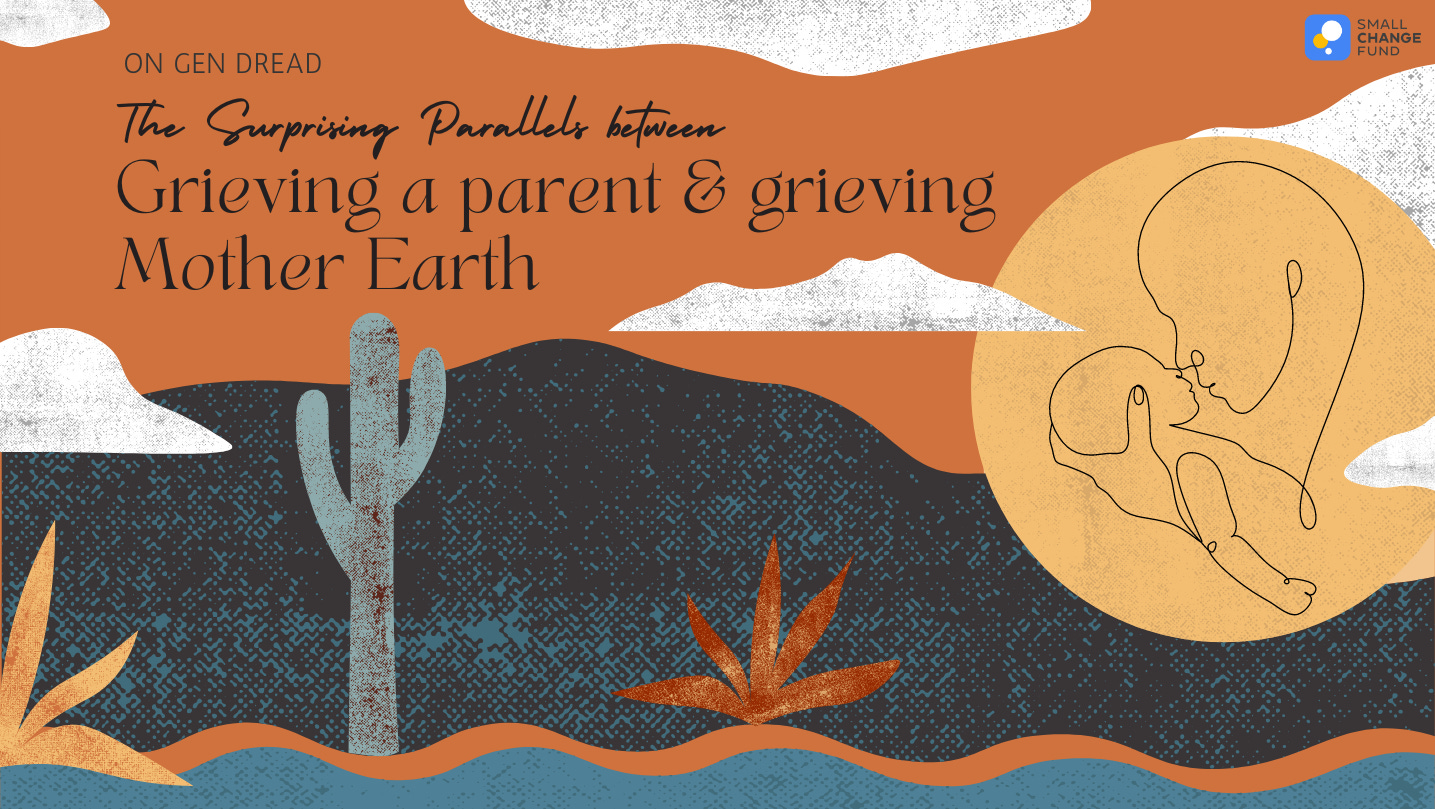
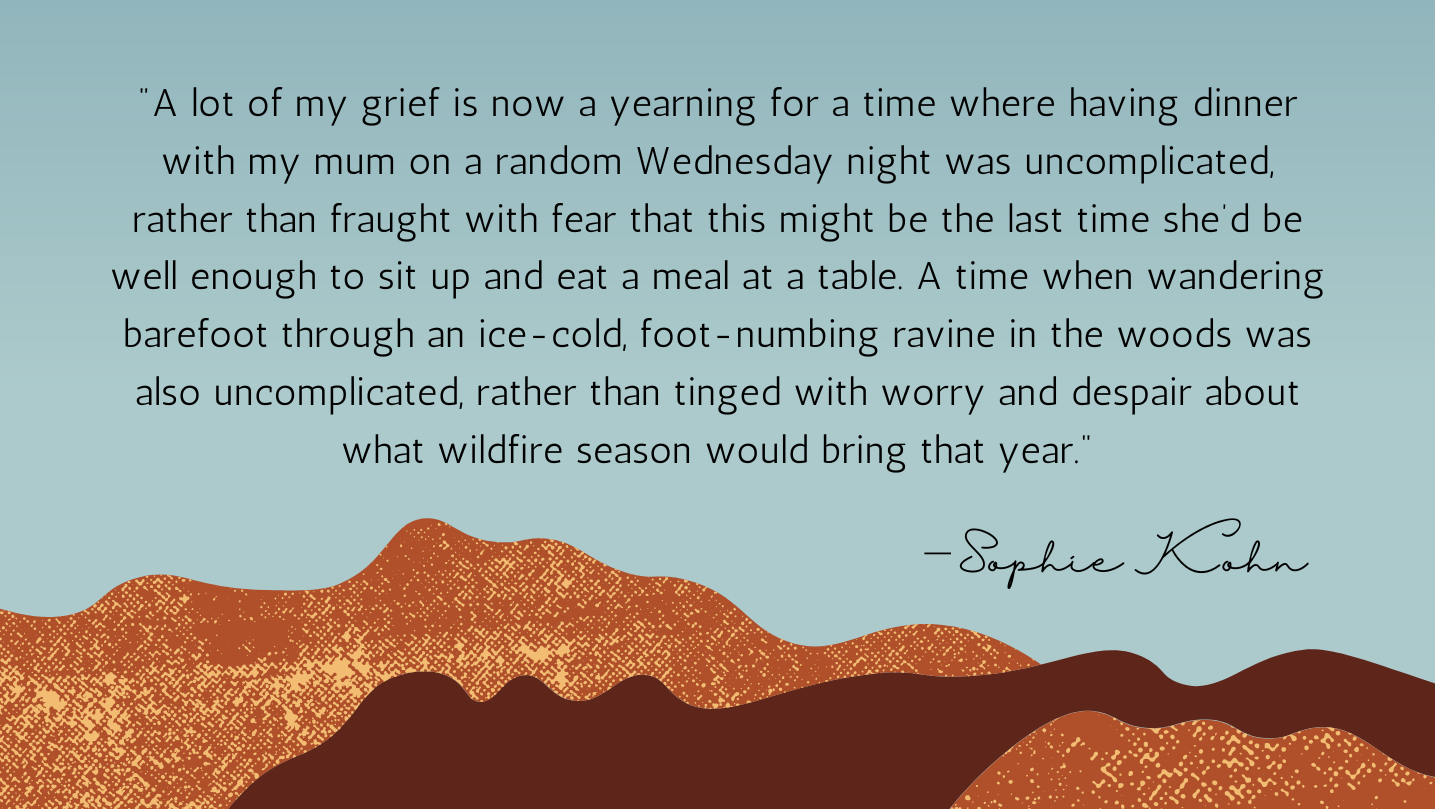
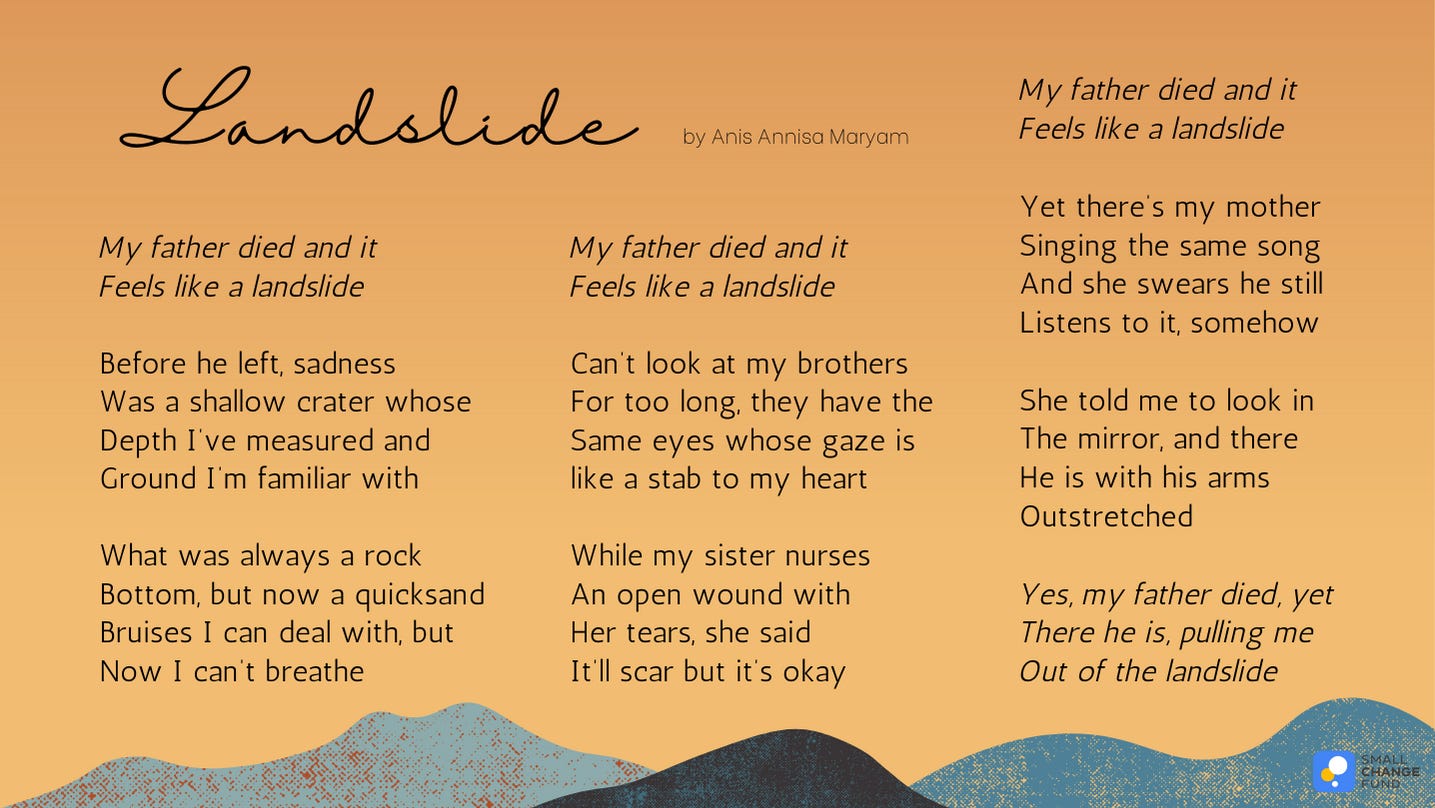
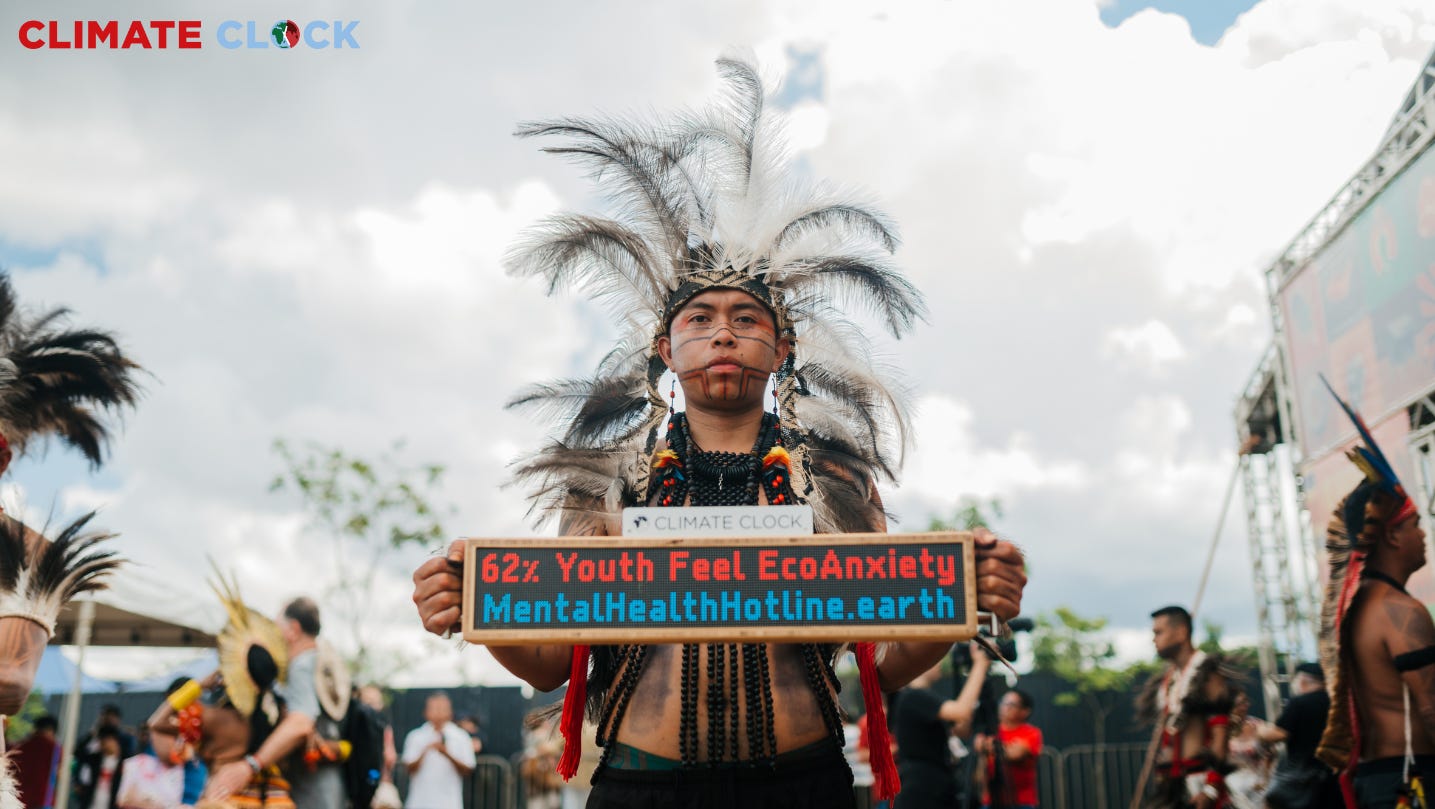
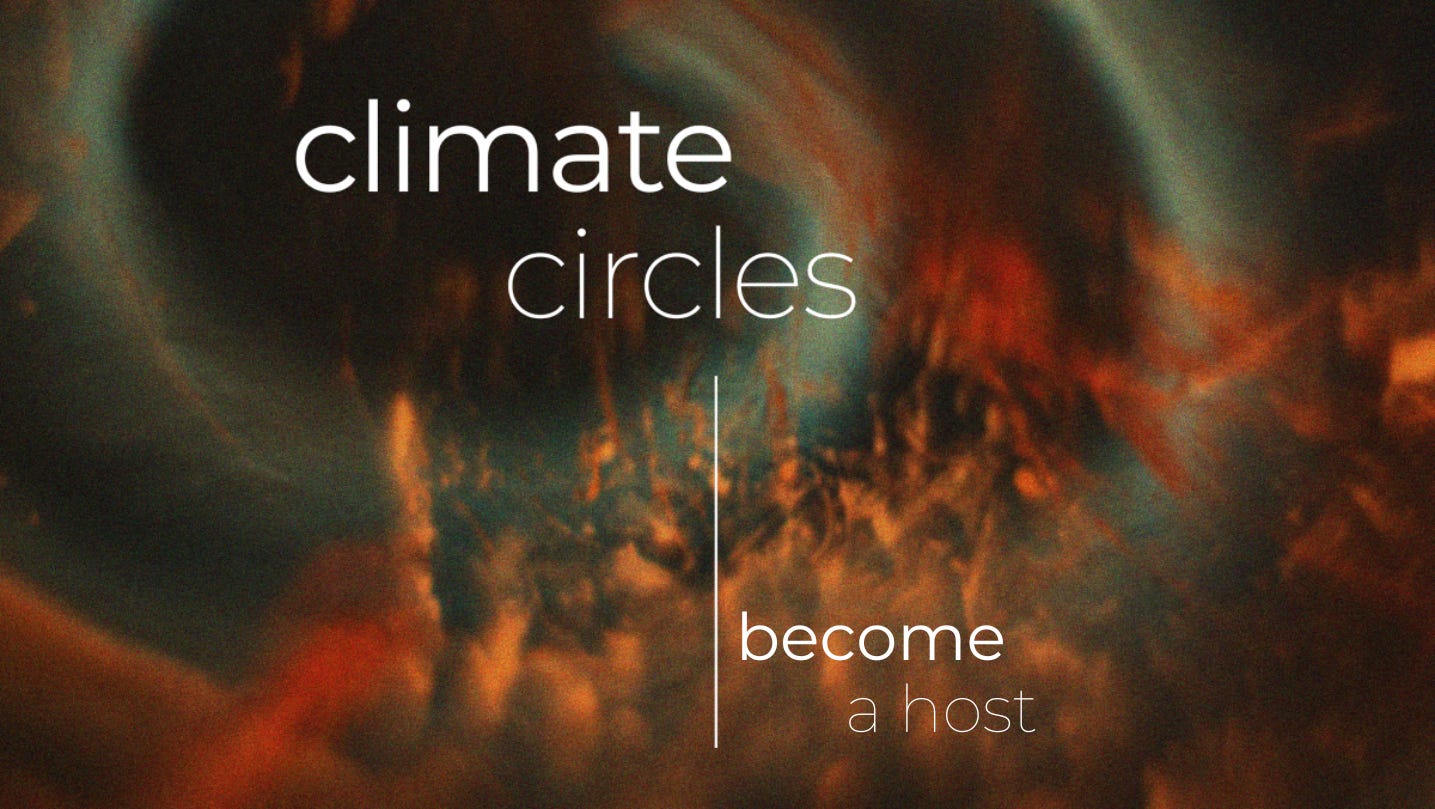
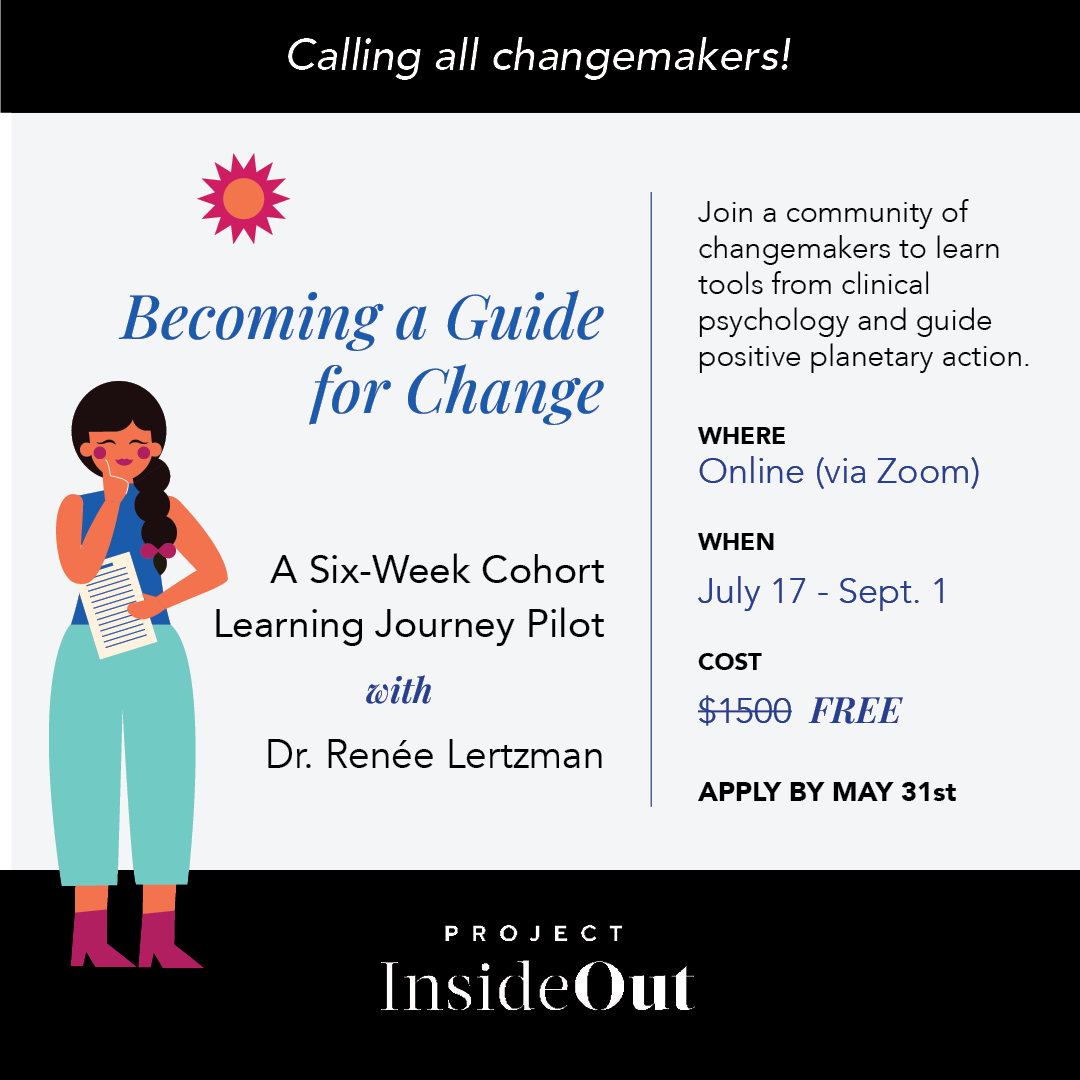
Thanks for a deep-reaching text. The experienced climate psychologist Rosemary Randall has also discussed the similarities in grief around climate crisis and losing a parent. For a discussion which features that, those interested can listen to: https://climatechangeandhappiness.com/episodes/season-2-episode-5-on-the-birth-of-climate-therapy-with-rosemary-randall
As someone who hasn’t lost a parent, but has close friends who have recently, this was an extremely emotional read. I feel like I have a better foundation to understand grief based on my ~climate anxiety~ (or whatever you’d like to call it). Thank you for sharing this vulnerable and touching piece.